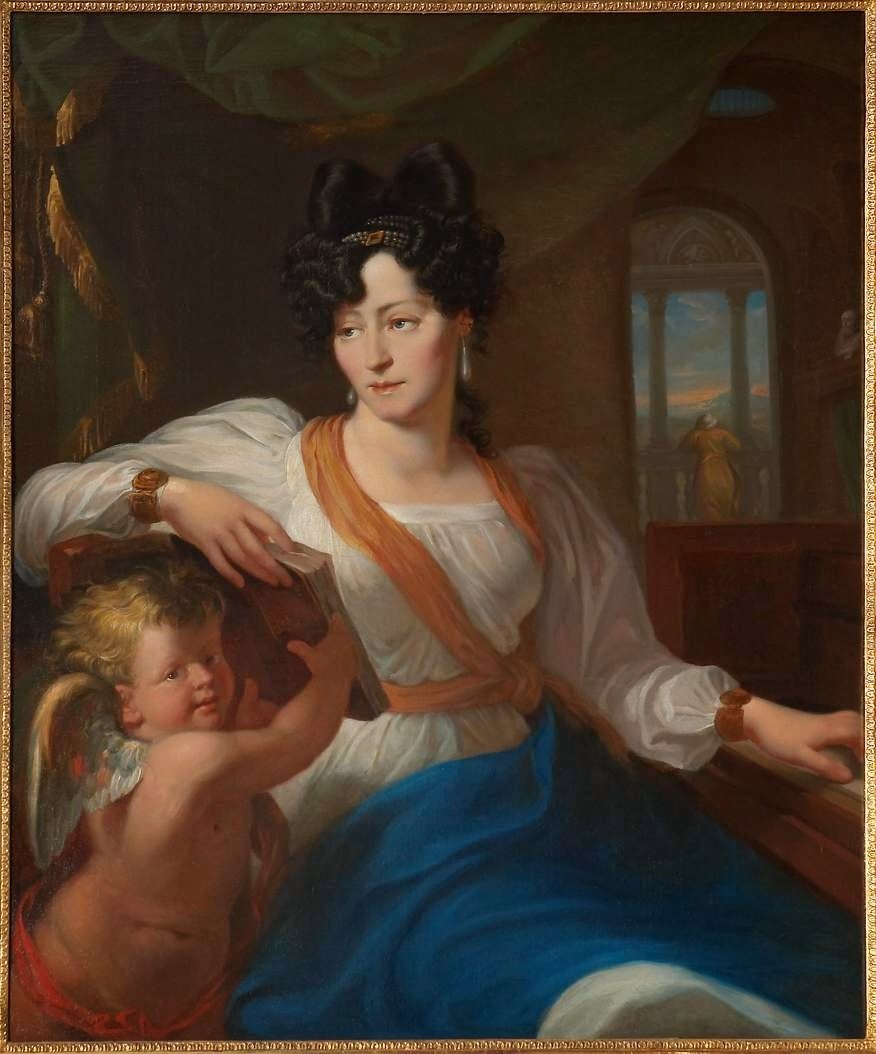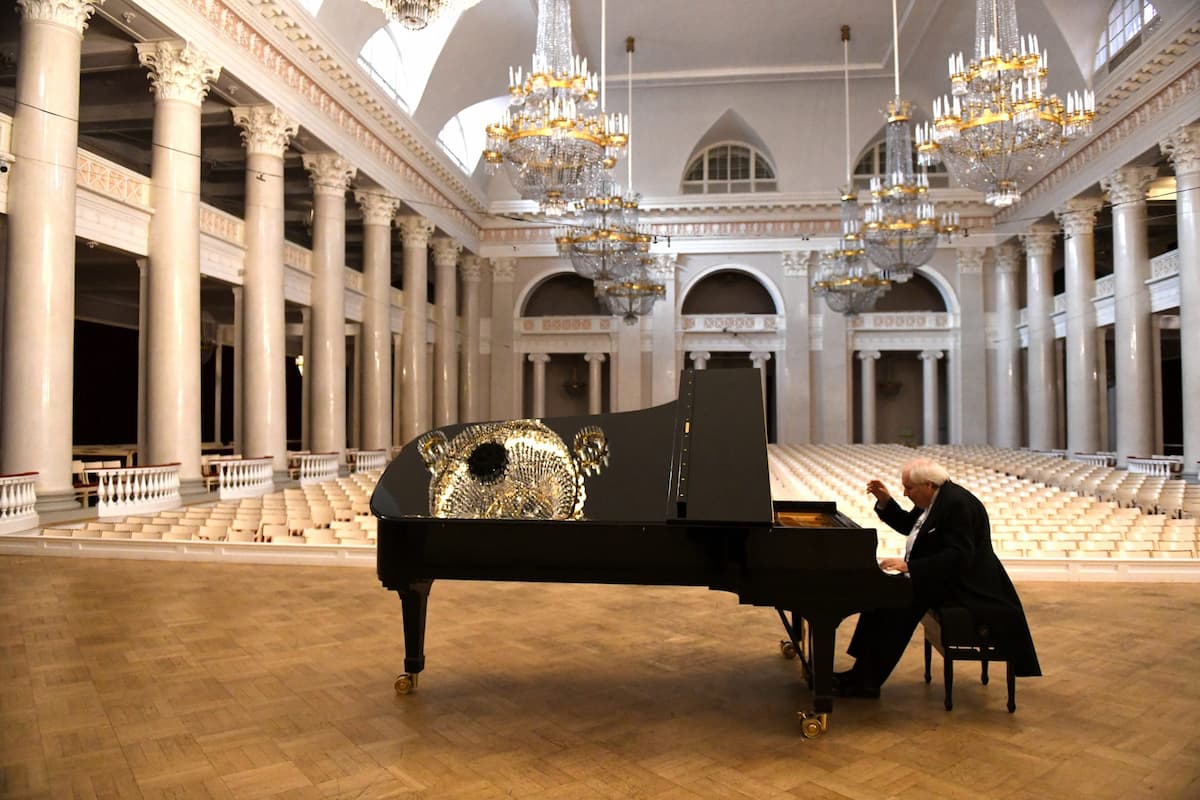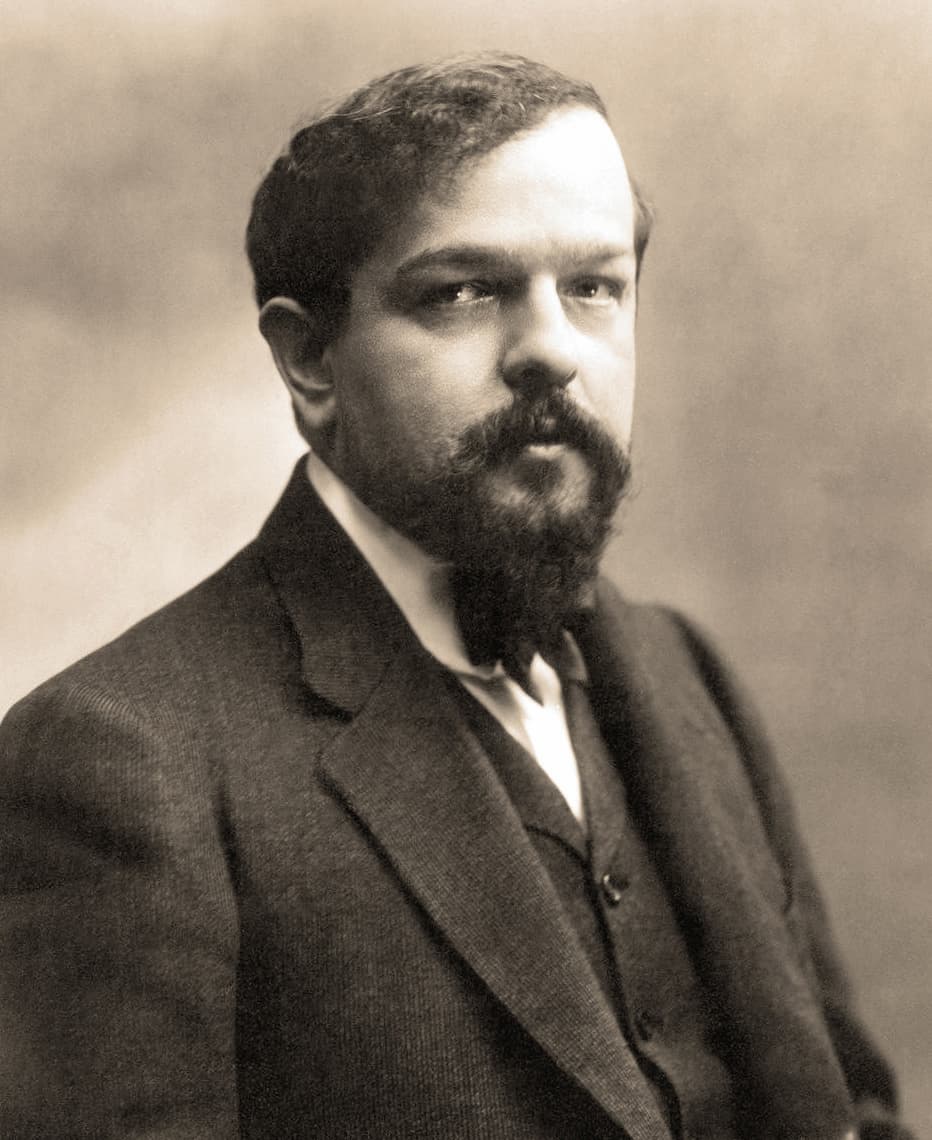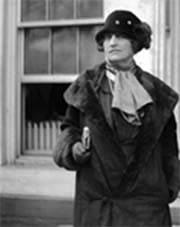
Winnaretta Singer
Winnaretta Singer’s influence is immeasurable. The twentieth child of twenty-four, (by five women), of American inventor, actor, and entrepreneur Isaac Singer of sewing machine fame, used her considerable fortune to support musicians, authors, musical organizations, and humanitarian causes. A millionaire by the age of eighteen, her patronage resonates today.
Winnaretta was born in 1865 in Yonkers, New York. Winnaretta’s deep connection to classical music was evident well before her adolescence. For her thirteenth birthday, she didn’t ask for a new outfit. She wanted only to hear a performance of Beethoven’s Opus 131 string quartet—considered one of the master’s impenetrable and perplexing works. Some years later she would say that the quartet and the Prelude of Bach’s 23rd fugue, “have always been one of the greatest comforts of my life…” (1)
Beethoven: String Quartet No. 14 in C-Sharp Minor, Op. 131
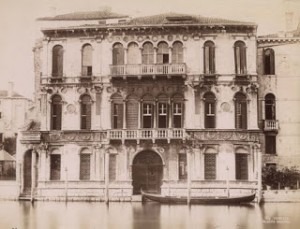
Palazzo Contarini Polignac
Winnaretta was a gifted pianist, organist and artist. She studied painting, spent many afternoons at the Louvre museum, and had the good fortune to observe Manet in his studio. But music was her primary passion and after witnessing Fauré’s financial difficulties, she was impelled to support the music of her countrymen especially of contemporary music.
 At age twenty-one Winnaretta finally received her inheritance. She was anxious to establish her independence and married Prince Louis de Scey-Montbéliard in 1887. Rumor has it that on their wedding night Winnaretta climbed onto an armoire to avoid his amorous attentions. Her lesbian propensities ultimately lead to an annulment in 1892. The following year she married amateur composer Prince Edmond de Polignac reputedly gay, penniless, and decades her senior. Although it was an unconsummated marriage, theirs was a union of ease and compatibility—boundless love for music, literature, the arts and for each other.
At age twenty-one Winnaretta finally received her inheritance. She was anxious to establish her independence and married Prince Louis de Scey-Montbéliard in 1887. Rumor has it that on their wedding night Winnaretta climbed onto an armoire to avoid his amorous attentions. Her lesbian propensities ultimately lead to an annulment in 1892. The following year she married amateur composer Prince Edmond de Polignac reputedly gay, penniless, and decades her senior. Although it was an unconsummated marriage, theirs was a union of ease and compatibility—boundless love for music, literature, the arts and for each other.In 1894, the elegant music room of their Avenue Henri-Martin home—replete with chandeliers, elegant drapery, period furniture, evocative paintings—became a gathering place for notable intellectuals, and the leading artists of the time including playwright and filmmaker Jean Cocteau, physicist and chemist Madame Curie, painter Claude Monet, choreographers Isadora Duncan and Serge Diaghilev, and the novelist Colette. Marcel Proust, considered one of the most brilliant writers of all time, penned evocative essays about the role of the artist in society, which were inspired by the concerts he attended at the Polignac’s home.
Chabrier: Gwendoline Overture

Monet’s painting
Ravel: Pavane pour une infante defunte (version for piano)
In the summer of 1891, the Singers fell in love with Venice. Fauré who had become a lifelong friend, was invited to spend several weeks there as a guest and during his stay he composed Les Cinq Mélodies de Venise his first major work dedicated to Winnaretta. In 1900 Ms. Singer bought the Venetian palace built on the Grand Canal—Palazzo Contarini dal Zaffo as a birthday present for her husband—a beautiful mid-fifteenth century edifice with a stone and marble façade now known as the Palazzo Contarini Polignac. Many idyllic days were spent there.
Fauré: Les Cinq Mélodies de Venise
When Polignac passed away in 1901, Winnaretta resolved to dedicate the rest of her life to music. In 1904, she refurbished her music room on Avenue Henri-Martin to be able to accommodate an entire chamber orchestra and 200 guests. Elegant dinners would often precede the concert programs.
Her summer sojourns in Venice continued with eminent personalities as company and the musical soirées there became quite as inspired as the salon concerts in Paris. Pianists Vladimir Horowitz, Arthur Rubinstein, and Clara Haskil, Maestro Arturo Toscanini, Serge Diaghilev and Cole Porter, and Stravinsky of course were all regulars.
Poulenc: Concerto for 2 Pianos in D Minor, FP 61
Winnaretta had an uncanny ability when it came to choosing composers to commission. Perhaps it was her musical training and cultural milieu that made her prescient. We too are the beneficiaries of her generosity. Winnaretta’s commissions included Darius Milhaud Les Malheurs d’Orphée, Eric Satie’s Socrate, and Francis Poulenc’s two pianos and organ concertos. Manuel de Falla’s El retablo de maese Pedro (Master Peter’s Puppet Show) also received its premiere in Winnaretta’s parlor with Wanda Landowska on the harpsichord.
Satie: Socrate
Winnaretta was especially intuitive about the talents of the young Igor Stravinsky:
“From the first it seemed to me impossible not to recognize the importance of this new genius, and I still think he dominates all others who have appeared for more than a quarter of a century. No one has escaped his influence, though, as usual, his imitators are often most obnoxious.” (2)
She closely collaborated with the composer from 1910 until her death in 1943, commissioning Stravinsky to compose Renard, a chamber work for dancers and mimes based on Russian folk-tales, “Very respectfully dedicated to Madame la Princesse Edmond de Polignac, a souvenir from the very devoted author.” She sought to promote Stravinsky often making generous donations so that performances, such as of the opera Oedipus Rex, libretto by Jean Cocteau, were possible. Debussy too was a favorite at the salon. His works were performed every month between 1905-1907.
Winnaretta Singer’s activities were not only confined to supporting the arts. During World War I she worked with Madame Curie to convert limousines into ambulances. The Princesse was especially dedicated to the cause of public housing and sponsored construction of homes for working class families. She later collaborated with the Salvation Army to build shelters for battered and homeless women and abandoned children.
In 1928 Winnaretta formed the Fondation Singer-Polignac intended to continue her efforts to promote music, the arts, science and literature. After her death the foundation inherited her mansion and activities continue to this day. Her collection of paintings including both a Monet and Manet now hang at the Musée d’Orsay in Paris. Her influence on the music and literature of the 20th Century is enormous. For more information about this remarkable woman please see Sylvia Kahan’s book Music’s Modern Muse: A Life of Winnaretta Singer, Princesse de Polignac. It brings her to life.
1) Kahan, 2009, p.345 from the blog by Stella Di Virgilio
2) Princess Polignac memoirs (Polignac, 1945, p.133) blog by Stella Di Virgilio
Stravinsky Oedipus rex
Historic video recording: L.Kozma, T.Troyanos, RAI Roma, C.Abbado |video 1969 ®

